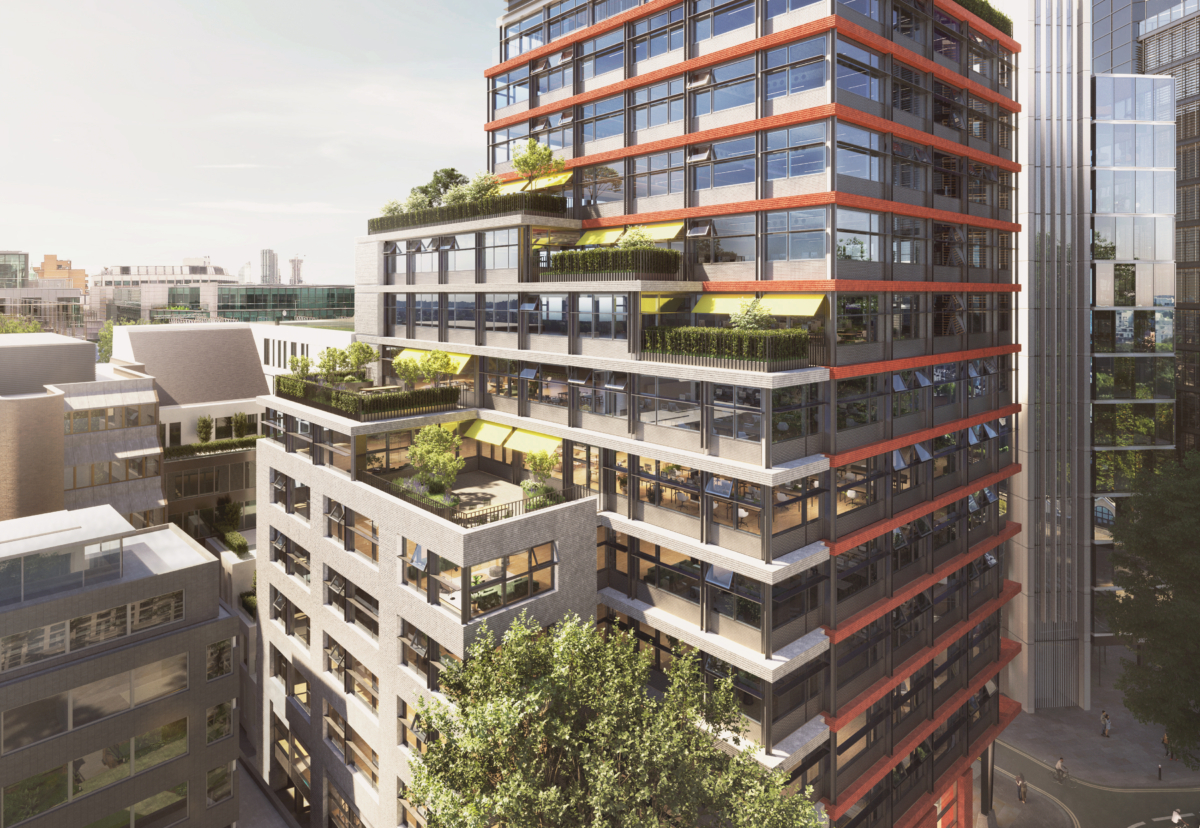The Edenica building will provide 95,000 sq ft of Grade A office and retail space on the site of a London pub once famous as a haunt for Fleet Street sports writers.
The revamp of the former offices of DAC Beachcroft and the White Swan pub at 108 Fetter Lane includes the demolition of the existing buildings and the delivery of a new 12-storey development, roof gardens, new pedestrian route and pocket square at ground level, as well as ancillary cycle parking.
The White Swan – known more affectionately as “the Mucky Duck” in the heyday of Fleet Street – will be retained and relocated to the north-east corner of the site.
Mace is due to complete the scheme by the end of 2024.
The development, designed by Fletcher Priest Architects will target the highest environmental standards of BREEAM Outstanding, as well as WiredScore, SmartScore and WELL certifications. Sustainability, technology and wellbeing are extensively incorporated into the design.
This includes generous planted terraces to encourage biodiversity and provide significant external breakout space, facilities to encourage active modes of travel, and high-performance 100% electric building services developed with Waterman Group to ensure that the building achieves Net Zero carbon emissions in use.
Edenica will be the first scheme within the City of London to be designed as a ‘storage bank’ where materials are held for future reuse, through the use of ‘Materials Passports’.
Materials Passports are digital data sets that describe characteristics of materials and components in products and systems, giving them value for present use, recovery and future reuse.
Campbell MacDougall, Director of YardNine said: “This is an important milestone in the delivery of Edenica and we are looking forward to working closely with Mace to bring forward this best-in-class office development in the centre of London.”
Ged Simmonds, Managing Director for Offices, Construct, at Mace, said: “We are excited to take on the delivery of such an ambitious development, raising the bar on sustainability through the use of Materials Passports, as well as smart technology to enhance occupier wellbeing.”

.gif)






































 (300 x 250 px).jpg)







.gif)






